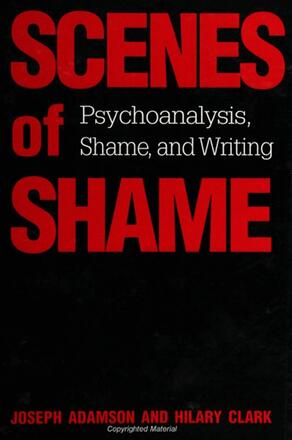
Scenes of Shame
Psychoanalysis, Shame, and Writing
Alternative formats available from:
Explores the role of shame as an important affect in the complex psychodynamics of literary and philosophical works.
Description
The significance of shame as a critical human emotion has come to be recognized in the fields of psychoanalysis, psychotherapy, and psychology. Scenes of Shame brings this body of theory to bear on literary and philosophical representations of shame. The contributors explore the role of shame as an important affect in the psychodynamics of a wide range of literary and philosophical works, including essays on Kierkegaard, Hawthorne, George Eliot, Nietzsche, Lawrence, Faulkner, Sexton, and Toni Morrison. The book also includes an analysis of the problem of shame in student lifewriting in the classroom, and testifies to the importance of affect in philosophy and literature, as well as to the way in which imaginative writers can clarify and enrich our understanding of an emotion that, as Silvan Tomkins claims, "strikes deepest" into the human heart.
Joseph Adamson is Associate Professor of English and Comparative Literature at McMaster University. He is the author of Melville, Shame, and the Evil Eye, also published by SUNY Press; Wounded Fiction: Modern Poetry and Deconstruction; and Northrop Frye: A Visionary Life. Hilary Clark is Associate Professor of English at the University of Saskatchewan and author of The Fictional Encyclopedia: Joyce, Pound, Sollers.
Reviews
"This book has something for everybody. On the one hand it introduces the reader to the depth and importance of an important emotion—shame. On the other hand, this attention to shame suggests original approaches to the work of well-known poets, novelists, and philosophers. " — Marshall Alcorn, George Washington University
"The topic is central to psychoanalytic studies and literary criticism. In fact, I see a good chance that this book could break new ground in criticism, thus becoming a frequently cited work. As I read the book, I realized how significant shame is in the work of many writers who are not even mentioned here—e. g., Coleridge, Conrad, Dickens, and, most of all, Doestoevsky. " — Daniel W. Ross, Columbus State University